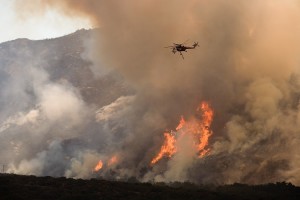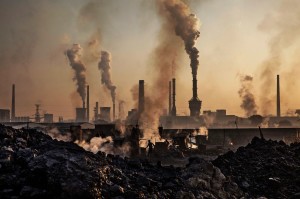How will climate change affect the financial sector and the broader economy? What policy responses will mitigate climate change risks? Recently, the US Federal Reserve Bank (FRB) sponsored the first conference dedicated to exploring the economic and financial risks associated with climate change.
“Climate change will have sweeping effects on our economy and financial system,” says the report summarizing the main themes of the conference. The report, released on December 16, 2019, was co-authored by Galina B. Hale, Òscar Jordà, and Glenn D. Rudebusch. Hale is a research advisor and Jordà and Rudebusch are both senior policy advisors at the Federal Reserve Bank of San Francisco (FRBSF).
On November 8, 2019, at the inaugural “Economics of Climate Change” climate change conference, the dominant themes were: macroeconomic implications, financial risks, and policy implications.
Macroeconomic Implications
The macroeconomic implications of a warmer world are being computer-simulated on a large scale by researchers who seek to understand the connections between the global climate and global economy. Solomon Hsiang at University of California, Berkeley presented research on how warmer temperatures make workers in the construction and agriculture sectors less productive.
Conny Olvosson at the Sveriges Riksbank modeled a world with multiple energy sources and alternative carbon-tax policies in order to study the effects on carbon dioxide emissions and economic growth. He found that green energy subsidies without taxing fossil fuels were likely to be ineffective, because such subsidies tend to increase overall energy use. Olvosson’s work quantifies the economic gains and losses from each policy and thus could serve as a starting point policy-makers.
People will migrate to avoid adverse climate developments, and extreme natural events will disrupt international trade. These effects were studied by Hashem Pesaran at the University of Southern California.
“Unabated pollution would be expected to put further downward pressure on interest rates,” write Hale et al., summarizing the work of Nicholas Muller at Carnegie Mellon University, who looked at the costs of carbon pollution and the associated losses to productivity. Pollution leads to a serious “permanent decline in the economy’s capacity to grow.”
Climate risks are financial risks
Dana Kiku at the University of Illinois at Urbana-Champaign showed that long-run temperature uncertainty leads to a risk premium in stock prices.
Even developed countries are still at an early stage of appropriately assessing climate risks. Ryan Riordan at the University of Oregon questions whether investors have fully priced the carbon risk.
The FRBSF reports that, “As economies adapt to climate change and gradually switch from carbon-based, so-called brown, energy to greener energy alternatives, the value of assets associated with brown technologies will decline and, in the extreme, assets may become ‘stranded.’” Michael Barnett at Arizona State University discussed the response of energy companies to the potential systemic risk. In the coal and oil & gas sectors, there is significant concern about assets that may suffer from unanticipated or premature write-downs, devaluations, or conversion to liabilities.
Policy Implications
The policy implications of climate change are not well-defined and sometimes work counter to good intentions. In fact, current trade policies in many countries may have increased carbon emissions.
Joseph Shapiro at the University of California, Berkeley looked at the value of considering climate change consequences when negotiating new trade agreements.
Stephie Fried at Arizona State University looked at the distortions to the economy when policymakers actually institute a carbon tax. “The United States does not currently have a federal carbon tax nor a cap-and-trade system,” write Hale et al.
Climate change resembles a natural disaster because it is a disturbance to the productive capacity of the economy, and it is thus predicted to raise inflation in the short run. Sandra Batten at the Bank of England examined the consequences of climate change for monetary policy and financial stability. Again, the spectre of stranded assets reared its head.
The report concluded that conference showed economic consequences of climate change are likely to be substantial and will require responses from economic policymakers, among others. ♠️
The article this posting summarizes can be found at: https://www.frbsf.org/economic-research/publications/economic-letter/2019/december/economics-climate-change-first-fed-conference/
The image of the helicopter fighting the fire is by Andrea Booher – from the FEMA Photo Library, Public Domain, https://commons.wikimedia.org/w/index.php?curid=8072075
The speeches and research of the Fed’s first conference on climate change are available on the conference website.




